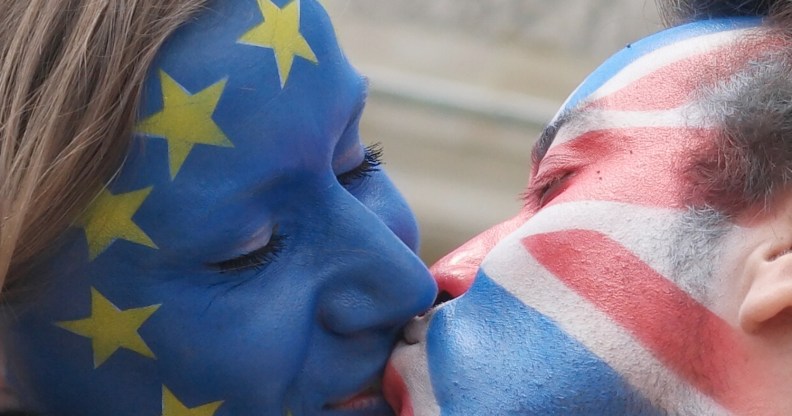Two million Brits sign petition for second EU referendum

A parliamentary petition urging the British Government to call a second referendum on the UK’s membership of the EU has topped two million votes.
On Saturday morning, the petition, started by William Oliver Healey, passed a million votes.

It urges the Government to call a second referendum on the basis of a vote either way less than 60 percent out of a turnout of 75 percent or more.
Since it has passed 100,000 signatures, the House of Commons will debate the issue – the campaign is still awaiting a debate date.
It reads: “We the undersigned call upon HM Government to implement a rule that if the remain or leave vote is less than 60% based a turnout less than 75% there should be another referendum.”
At one point on Friday, following the referendum announcement, a thousand people a minute were signing the petition, and it crashed the Government petitions website.
The UK narrowly voted in a referendum today to leave the EU – with 17,410,742 (51.9%) votes to leave, and just 16,141,241 (48.1%) votes for remaining.
Mr Cameron, who had fought passionately for the UK to stay in the EU, resigned yesterday morning, saying the country must take a “different path”.
He added the country requires a “different captain to steer the ship” to drive the negotiations with the EU and devolved governments.
In his speech outside 10 Downing Street, Mr Cameron cited his legacy – including passing same-sex marriage in 2013.
Scottish First Minister Nicola Sturgeon yesterday announced that she felt it was “highly likely” that Scotland would hold a second independence referendum following the UK’s result.
Before the referendum took place, Ms Sturgeon told PinkNews why she thought the UK should remain members of the EU.
“One of the reasons why I think it’s important to stay in the EU is around social and employment rights that the EU has introduced and protected.
“I think different countries will take their own decisions on things, we touched on some of that already, but, it’s important there is a sort of common understanding of rights across the European Union.
“I think that membership of the EU guarantees that.”

